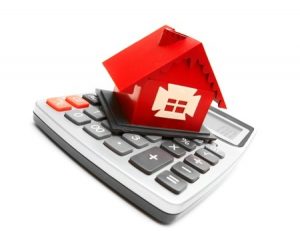
The government announced in April 2015 to cut mortgage relief and this will become reality in four months time so what will be the impact ?
Landlord already are reeling from the following recent changes which has an adverse affect on net yields
1) Wear and Tear 10% was replaced by replacement basis. In most cases this provided an additional tax allowance resulting in a higher net profit after tax. From April 2016, you can only replace items in the property that is similar to the one purchased earlier. If the item replaced is an improvement then it may be deemed to be capital.
2) 3% Stamp Duty for second property
3) Mortgage Arrangement Fees and Broker costs which can be significant no longer will be allowable in the profit calculation.
4) Additional Costs imposed by legislation e.g HMO, health and safety etc.
5) Government banning letting fees to be charged to tenants which costs will now be passed onto Landlords
The biggest change and one that concerns the landlord the most is the reduced mortgage tax relief for higher rate tax payers. At the moment landlords can offset the all of the mortgage interest cost from the rental income when they calculate their profits. However, from April 2017, tax relief will be given at 20% but this will have wider impact on landlords across the board as many may move from 20% to 40% tax bracket on all their income.
This changes will be tapered over the next four years – mortgage relief will reduce by 25% each year from 2017 until 2021
|
Year |
% of costs deducted from profits | % of costs available as a basic rate deduction |
| 2017/18 | 75% |
25% |
| 2018/19 | 50% |
50% |
| 2019/20 | 25% |
75% |
| 2020/21 | – |
100% |
Example
Lets’ take a landlord with:
Rental Income: £82K
Mortgage Interest: 30K
Other Allowable Costs: £10K
Using Tax Rates for 2016/17 and for this example a personal allowance of 10K
| Before | After | ||||
| Rental Income | 82,000 | 82,000 | |||
| Mortgage Interest | -30,000 | ||||
| Allowable Costs | -10,000 | -10,000 | |||
| Total | 42,000 | 72,000 | |||
| Tax | |||||
| 10,000 | @ | 0% | 0 | 0 | |
| 32,000 | @ | 20% | 6,400 | 6,400 | |
| 30,000 | @ | 40% | 12,000 | ||
| Total | 6,400 | 18,400 | |||
| Less Mortgage Tax Relief 20% | -6,000 | ||||
| Total Tax Payable | 6,400 | 12,400 | |||
| Increase | 100% | ||||
From the above example, you can see how easy it would be for a landlord to move to a higher tax bracket. It is tantamount to a tax on turnover than profit
Apart from increase in total income for tax, this could affect anyone on tax credits or claiming child benefits. Possibly, you could end up paying 28% of Capital Gains Tax instead of 18%.
It could also push some into the 100K Income band meaning a loss of Personal Allowances.
Interestingly landlords now have some decisions to make to protect their profits.
• Sell up
• Increase Rents
• Repay Mortgages to reduce mortgage interest
• Salary Sacrifice Schemes
• Change Beneficial Interest. Lower tax payer to take the majority ownership of the property
• Setup Limited Company.
• Change to Furnishing Holiday Lets
Increasing Rents may not be easy as tenants are already struggling and rent arrears growing and there has not been a corresponding increase in wages over the last six years.
Many Landlords have set up a Limited company recently to mitigate against the changes in tax relief . Setting up a Limited company is not the solution for everyone due to the additional taxes payable Stamp Duty and Capital Gains Tax. Professional Advice should be sought before moving properties to a Limited Company. If the rental property is considered to be a business then there are tax planning opportunities to avoid Stamp Duty and Capital Gains Tax.
What is essential that landlords do the calculations NOW and take action through one or more of the above 7 bulletin points. A five year forecast should be carried out. It can be done by putting three scenarios’ – Best Case, Likely Case or Worst Case. Interest rates need to be factored in – interest rates likely will increase in the next few years resulting in further decline in profits or increase losses.
The market does need landlords as there isn’t adequate housing stock – there is a danger if landlords do leave the market then the housing rental situation could get worse. There is also a risk with so many changes in a short period of time that house prices could crash which would be disaster for the economy.

Recent Comments